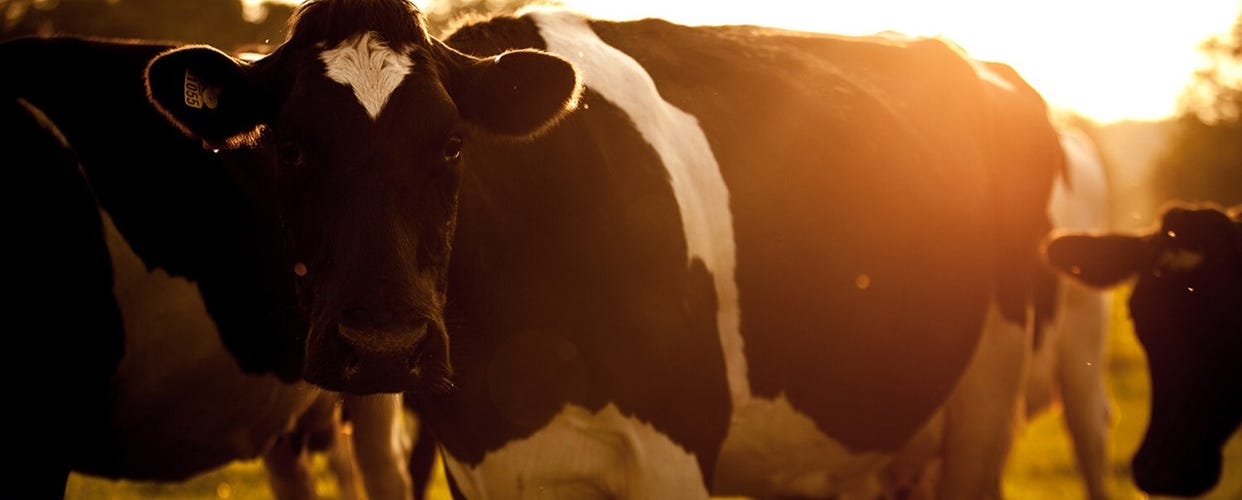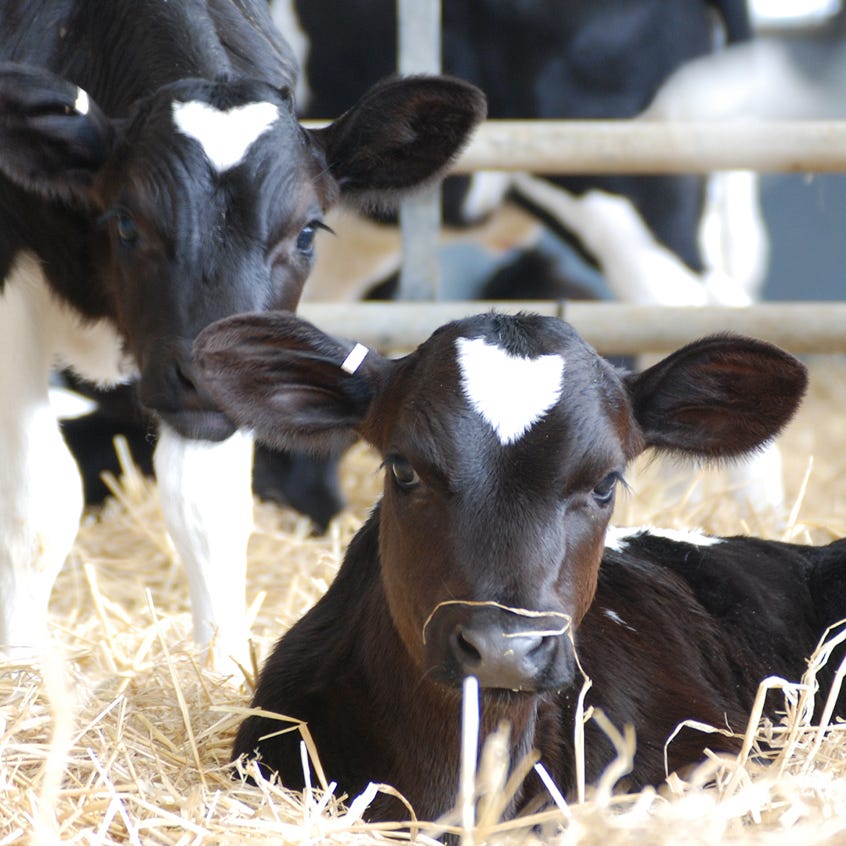
A new meaning to the milk you buy
At Daylesford, the day-to-day of our dairy herd encompasses and celebrates each of our most valued organic practices: high welfare, sustainability, superior quality and a drive to make every effort to reduce wastage. If you understand our dairy herd, you understand what drives us.
Each new member who joins our team is encouraged to learn the way our farm works and why our organic ethos is central to everything we do. Juliet Scott shares what she learnt after spending a morning with our Dairy Herdsman and our new calves at the farm.
"As a child my favourite meal was always roast chicken. It was easy to understand where the crunchy vegetables came from, as I scrubbed soil from the carrots. But it wasn’t until I was older that I realised there was a more complex journey to the plate for the chicken. I care about where the meat I eat comes from and over time I began to learn the difference organic farming makes to the chicken’s life and the importance of being reared well.
Until last week, I also thought milk was milk, until I spent the morning on the dairy farm.
Daylesford breeds organic British pedigree Friesian dairy cows, a preferred choice over the Holstein, due to their longevity. They are fed on a forage based system, enjoying a leisurely graze, and have a conformation that ensures little to no lameness, a strong back and healthy, comfortable udders. With a slower metabolism, Friesians produce slightly less milk in the short term than Holsteins, but with their far longer lifespan they are much more sustainable, so Carole Bamford decided to breed back to British Friesians in 2005. Their milk is also of superior quality and is packed with goodness including a high content of omegas and butterfats.
From the moment a new dairy calf is born, the entire process in rearing her to produce milk (at two years old) is taken slowly to ensure her transition from the field to the dairy is entirely calm. Nothing is rushed before she is ready, and as a result you can see that the cows are happy and contented into adult life. As part of this nurturing process, at five days old, calves are gathered into social groups of five when their mothers leave for the dairy parlour. They are hand-reared on milk from the herd, ensuring plenty of human interaction and attention.
By the end of May, now at around six months old, the cows social groups are enlarged and they are sent outside to graze for the warmer months before returning inside for the winter again.
By the following May, the calves have matured into heifers, and newly pregnant, return outside to graze for another summer. It is at this point they are integrated with older cows and will form invaluable bonds, because it is these cows who will show them the ropes in the dairy parlour.
It was fascinating to learn about Daylesford’s commitment to the welfare of their Friesian herd, the investment that is made in the calves’ formative months, and the difference this ultimately makes to the milk that is produced, but mostly to see the happy, healthy calves starting out on their new journey. Presented with all of the facts, a glass of organic milk now has a whole new meaning."
A FEW INTERESTING FACTS ABOUT THE DAIRY AND OUR HERD:
- Each herd has a matriarch, a senior figure that the others follow – our current matriarch is Daylesford Speaker Celebrity, closely followed by Daylesford Sunshine Celebrity.
- The milk that our herd produces travels just 30 metres to our own designated Creamery and then another 30 metres to our Cotswolds Farmshop floor. It does not get much more local than that.
- The makeup of the milk from the herd will change every day throughout the year with the water, fat, protein and mineral content being influenced by everything from the weather to the forage available. Being an organic farm, at Daylesford we never standardise or homogenise our milk, so as a result, the artisan team working in our Creamery have to adapt their recipes each day to work with the renewed profile of the milk. It is when the herd are turned out to pasture in the spring that the most marked difference can be seen, and this is why you will find that when matured, our cheeses (such as our Double Gloucester and Baywell) made from spring milk are perhaps the best of the year.


